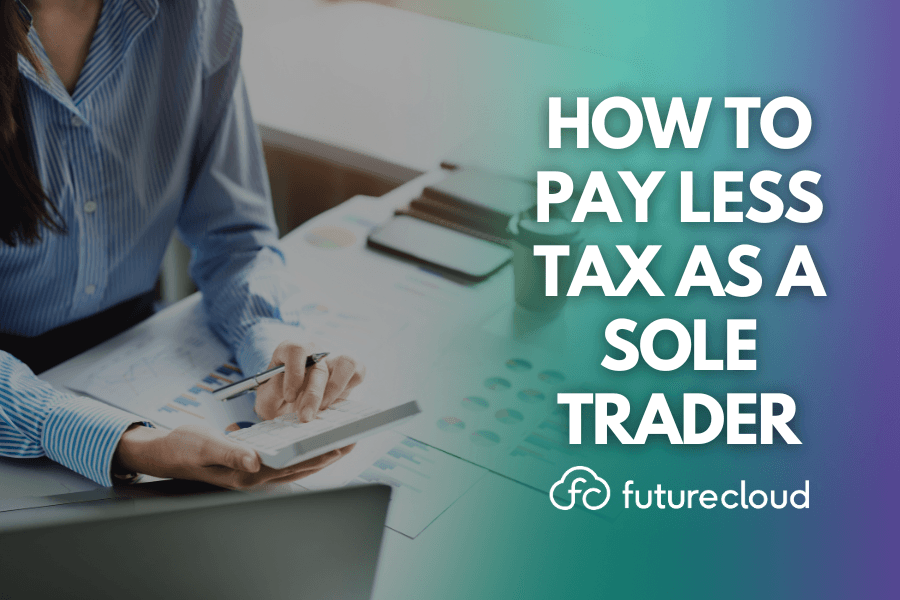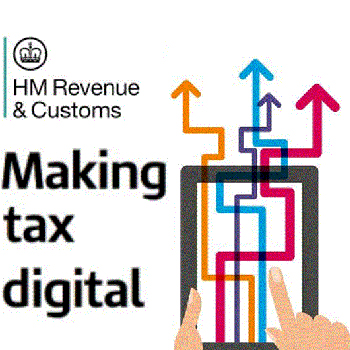Running your own business as a sole trader is one of the most popular ways to work for yourself in the UK. It offers flexibility, independence, and lower setup costs compared to limited companies. But with that freedom comes responsibility… Especially when it comes to tax.
At Future Cloud, we work with sole traders across the UK every day, helping them stay compliant and find smart, legal ways to reduce their tax bill.
Here’s our straightforward guide to help you understand how to pay less tax as a sole trader, without crossing any lines.
Claim all allowable business expenses
One of the most effective ways to reduce your tax bill is by claiming all allowable business expenses. These are costs that are “wholly and exclusively” for your business. Common examples include travel, office supplies, phone bills (the business portion), equipment, tools, training, marketing, and professional subscriptions.
Even small day-to-day costs can add up over a year, so it’s important to keep track of everything. Remember, if you don’t claim it, you’re potentially paying tax on money you didn’t need to.
Understand your tax-free allowance
Every individual in the UK gets a personal allowance, the amount you can earn before paying income tax which is £12,570. You’ll only pay income tax on your profits above this threshold. For sole traders, profits are calculated as your total income from self-employment minus any allowable business expenses.
Don’t miss the trading allowance
The trading allowance lets you earn up to £1,000 per year from self-employment without having to register or pay tax. If your total income from sole trading is below this amount, you usually don’t need to file a tax return at all.
If your income is higher, you can still use the allowance, but you have to choose between deducting the £1,000 allowance or your actual business expenses (you can’t do both). You’ll want to choose whichever option gives you the lower taxable profit.
The government has announced plans to raise the reporting threshold to £3,000 in future years, but as of October 2025, the £1,000 trading allowance still applies for tax purposes.
Contribute to a pension
Paying into a personal pension isn’t just good for your future, it’s smart tax planning, too. Pension contributions reduce your taxable income, which means a smaller tax bill today.
You can usually get tax relief on contributions up to 100% of your earnings, capped at £60,000 per year (for most people). It’s a win-win because you’re saving for retirement while reducing the tax you pay now.
Use your home as an office
If you work from home, you can claim a portion of your household bills as a business expense. This includes utilities, broadband, council tax, and rent or mortgage interest. You can either claim a flat rate based on the number of hours you work from home or calculate a percentage of your actual home running costs.
The flat rate is easier, but the actual cost method can give you a bigger tax saving if calculated correctly. We can help you decide which method works best for your situation.
Track and organise your expenses
Claiming expenses isn’t just about knowing what’s allowed, it’s also about keeping good records. Use cloud accounting software, a spreadsheet, or a simple app to log all business-related purchases and store digital copies of receipts.
Poor record-keeping often results in missed claims, which means higher profits, and therefore higher tax. Having clean, up-to-date records makes your Self Assessment easier, quicker, and often cheaper if you work with an accountant.
Think about VAT, even if you’re not required to register
Most sole traders don’t register for VAT until their turnover hits the £90,000 threshold. But in some cases, it can be beneficial to register voluntarily before that.
If you deal with VAT-registered clients or spend a lot on goods and services with VAT, registering voluntarily may allow you to reclaim VAT on your costs. However, it also adds admin and could raise your prices to consumers. Speak to an accountant before making this decision, it doesn’t suit everyone.
Make the most of capital allowances
If you buy equipment, tools, or vehicles for your business, you may be able to deduct the cost through capital allowances. The most useful is the Annual Investment Allowance (AIA), which allows you to deduct up to £1 million of qualifying purchases each year.
This includes things like laptops, business machinery, or vans, anything you buy to help run your business. Claiming this can make a big dent in your taxable profit.
File your tax return early
Filing early doesn’t mean paying early, but it does give you more time to plan, check for errors, and budget for your tax bill. Many sole traders leave their return until January, missing out on opportunities to improve their tax position.
Filing early also reduces the risk of late filing penalties and gives your accountant time to spot last-minute savings.
Employ your spouse or partner (if appropriate)
If your spouse or partner helps in the business, for example, with admin, marketing, or customer service, you might be able to pay them a salary or include them in a partnership. This spreads income across two people, potentially using up more of the tax-free personal allowance.
The key is that they must actually do real work and be paid a fair rate. HMRC frowns on artificial income shifting, so you’ll need to keep proper records, including contracts and payslips.
Review National Insurance contributions (NICs)
Sole traders pay Class 2 and Class 4 National Insurance based on profits. These contributions are separate from income tax and can sometimes catch people off guard.
By reducing your taxable profits, for example, through claiming expenses or pension contributions, you also reduce the number of NICs due. Make sure you factor NICs into your overall tax planning to avoid surprises.
Work with an accountant who understands sole traders
Tax planning can be complicated, especially when rules change from year to year. A qualified accountant will help you:
- Claim every deduction you’re entitled to
- Plan ahead to reduce your tax bill
- Stay compliant with HMRC
- Avoid penalties and missed deadlines
- Free up your time to focus on growing your business
At Future Cloud, we work with sole traders across many industries. We offer friendly, straight-talking advice to help you save time, reduce tax, and build a more profitable business.
Ready to pay less tax?
Email us at info@future-cloud.co.uk or get in touch here!
And don’t forget to follow us on social media for the latest updates, tips, and more!


